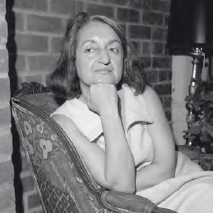New PhilosophyFeminist Philosophy |
What are the three waves of feminism according to feminist philosophers? |
The first wave began on the eve of the French Revolution with Mary Wollstonecraft’s (1759–1797) writings and continued until women in both Great Britain and the United States were granted the right to vote in 1918 and 1920, respectively.
After women gained suffrage in the United States, the women’s movement seemed to go into a dormant period, perhaps because until the end of World War II progressive thought was concentrated on socialism and communism. However in the middle of the twentieth century, the publication of two books began what many view as the second wave: the French existentialist philosopher Simone de Beavoir’s (1908–1986) The Second Sex (1952) and Betty Friedan’s The Feminine Mystique (1963).
Betty Freidan (1921–2006) was an American writer and left-wing political journalist and activist. In 1957, at the 15-year reunion of Smith College (an institution for women), she interviewed her classmates, who had graduated in 1942. Many had achieved the approved social ambition of a husband, home, and children, but they were dissatisfied with their lives and in some instances agonizingly unfulfilled. Friedan argued, in ways that resonated throughout American society and Europe, that women as human beings needed education and meaningful work, mental stimulation, and fully adult responsibilities.
By the 1970s, further development of Friedan’s ideas found expression in the third wave. The women’s liberation movement was associated with the following achievements: Title VII of the Civil Rights Act of 1964 prohibited discrimination in employment on the grounds of gender, as well as race; the U.S. Supreme Court decision of Roe v. Wade in 1973 legitimized the right to abortion based on bodily privacy. These legal innovations combined with “the pill” (birth control medication), provided a new degree of sexual freedom, huge increases in women’s employment outside the home, and access to higher education. Women entered the professions in unprecedented numbers and “the rest is history” in the sense that it is now taken for granted by American society that women should have opportunities equal to men’s.

